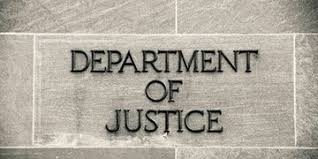Revised FCPA Guidance: Updated DOJ Policies (Part III of V)

The Justice Department has continued at a steady rate to tweak relevant policies applicable to FCPA enforcement. The Revised FCPA Guidance has incorporated these policies.
FCPA Corporate Enforcement Policy and Declinations (pp. 51-54)
The FCPA Corporate Enforcement Policy is quickly becoming “a well-established” framework. DOJ has expanded it to cover all corporate criminal resolutions except for criminal antitrust violations.
The FCPA Corporate Enforcement Policy (“CEP”) creates a presumption that DOJ will decline prosecution of a company for FCPA violations absent aggravating circumstances, assuming that the company (1) voluntarily discloses misconduct; (2) fully cooperates; and (3) timely and appropriately remediates. Aggravating circumstances include involvement of executive management in the misconduct, a significant profit from the misconduct, pervasiveness of the misconduct, and criminal recidivism. Even where aggravating circumstances may exist, DOJ may still decline prosecution in certain cases which senior management engaged in bribery (See Cognizant Technology Here).

If a criminal resolution is appropriate where the three requirements are met, DOJ will recommend a fifty (50) percent reduction off of the low end of the applicable Sentencing Guidelines range, and generally will not require appointment of a corporate monitor. If a company fails to voluntarily disclose misconduct but meets the two other requirements under the CEP, the company can still earn a twenty-five (25) percent reduction off of the low end of the applicable Sentencing Guidelines range.
In the merger and acquisition context, if a company uncovers misconduct in the target entity, either in pre-acquisition due diligence or post-acquisition integration audits, and voluntarily discloses the misconduct and otherwise complies with the CEP requirements, the company can earn a presumption of a declination.
To be eligible for the CEP, a company is required to pay all disgorgement, forfeiture and/or restitution resulting from the misconduct at issue.
The Revised FCPA Guidance includes several examples of declinations awarded under the CEP. The list of companies receiving declinations is publicly available on DOJ’s website.
Anti-Piling On Policy (p. 71)

In May 2018, DOJ announced a new policy to credit coordinated, multi-jurisdictional enforcement actions. Under the policy, prosecutors are required to “endeavor, as appropriate, to coordinate with and consider the amount of fines, penalties and/or forfeiture paid to other federal, state, local or federal enforcement authorities seeking to resolve a case involving the same misconduct.”
Appointment of Compliance Monitors (pp. 73-74)
In criminal cases, DOJ sometimes requires appointment of an independent compliance monitor to ensure enhancement and remediation of a compliance program. In determining when to appoint a monitor, in 2018, DOJ issued guidance under which prosecutors should assess (1) the potential benefits that employing a monitor may have for the corporation and the public, and (2) the cost of a monitor and its impact on the operations of a corporation.
The Revised FCPA Guidance includes a list of factors considered by DOJ and the SEC as to when to appoint an independent compliance monitor: (1) nature and seriousness of the offense; (2) duration of the misconduct; (3) pervasiveness of the misconduct, including whether the conduct cuts across geographic and/or product lines; (4) The risk profile of the company, including its nature, size and geographical reach and business model; (5) Quality of the company’s compliance program at the time of the misconduct; (6) Subsequent remediation efforts and quality of the company’s compliance program at the time of resolution; and (7) whether the company’s current compliance program has been fully implemented and tested.














